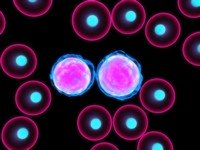Solving problems every tea drinker faces.
Exclusive subscriber benefits:
Receive four FREE quality ebooks worth $60
-
Save at least $5 during your first purchase
If you are prone to iron deficiency or anaemia, you may have a dilemma of whether or not to drink tea.
It is not a straightforward decision.
Scientific evidence is mixed. While it is widely recognised that drinking tea causes malabsorption, large scale population studies point otherwise.
In a while, you will understand why scientific studies offer contradicting results and how to take effective precautions against it.
Why Tea Can Be Anaemic
There are two kinds of dietary iron: heme and non-heme.
 Heme iron, found in meat, fish and poultry, is absorbed by the body very
efficiently.
Heme iron, found in meat, fish and poultry, is absorbed by the body very
efficiently.
Non-heme iron, found in flours, cereals, and fortified grain products, is more difficult to absorb.
Tea tannins contain antioxidants that offer many health benefits. They protect from metal pollutants by combining with them, rendering them harmless.
Could the same process interfere with the absorption of dietary iron?
Scientists in the Royal Veterinary and Agricultural University in Denmark found that this is the case.
A green tea and iron study published in the March 2001 edition of the American Journal of Clinical Nutrition reports that green tea extract reduces the absorption of non-heme iron by 25%.
Ready For The Twist?
The 2001 green tea and iron study is not unique. Several other studies report similar findings. Tea affects food consumption and utilization.
It is great if you are trying to lose weight, but bad news for those prone to anaemia.
Now, does it mean that being a healthy, long-term tea drinker makes you vulnerable to iron deficiency?
Surprisingly, the answer is no. Here comes the twist: studies suggest that drinking tea for an extended period of time does not reduce iron absorption either in rats or humans.
For example, the 1992 population study conducted by Mehta found negative correlations between drinking tea and anaemia.
How strange?
It is speculated that long-term consumption triggers a defensive mechanism in the body that neutralises the harmful effects of tannins.
A 2005 green tea and iron study conducted by Kim offers one plausible explanation.
The scientists found that rats drinking tea for 5 days have a heavier parotid gland and therefore secrets more proline-rich proteins (PRP) in saliva.
70% of saliva secreted by humans are PRP.
PRP combines with tannins, preventing them from reducing iron absorption.
Put another way, if you drink tea occasionally, having your meal with tea can be harmful.
But if you are a healthy, long-term drinker, your body adapted by secreting a high level of proteins in the saliva, which form complexes with tannins, rendering them harmless.
Cool eh?
Taking Effective Precautions
To put this into perspective, many foods and beverages also reduce the amount of non-heme iron we absorb.
These include coffee, dairy, fiber, eggs and some chocolate. Calcium can impair the absorption of both non-heme and heme iron.
Therefore if you need more iron, you should avoid these foods. But if you have too much iron, you should eat more of them.
If you suffer from or are prone to iron deficiency, the following might help:
New! Comments: Like This Story? Leave A Comment!
References
Samman S, Sandstrom B, Toft MB, Bukhave K, Jensen M, Sorensen SS, Hansen M (2001). Green tea or rosemary extract added to foods reduces nonheme-iron absorption. Am J Clin Nutr. 2001 Mar;73(3):607-12.
Hee-Seon Kim and Dennis D. Miller (2005). Nutrient Interactions and Toxicity Proline-Rich Proteins Moderate the Inhibitory Effect of Tea on Iron Absorption in Rats. The American Society for Nutritional Sciences J. Nutr. 135:532-537, March 2005
Mehta, S. W., Pritchard, M. E. & Stegman, C. (1992) Contribution of coffee and tea to anemia among NHANES II participants. Nutr. Res. 12:209-222.
Back to Top of Green Tea and Iron
Back to Green Tea Side Effects Main Page
Back to Amazing Green Tea Home
Solving problems every tea drinker faces.
Exclusive subscriber benefits:
Receive four FREE quality ebooks worth $60
Save at least $5 during your first purchase
Copyright� 2006-2025 Amazing-Green-Tea.com. All rights reserved.

